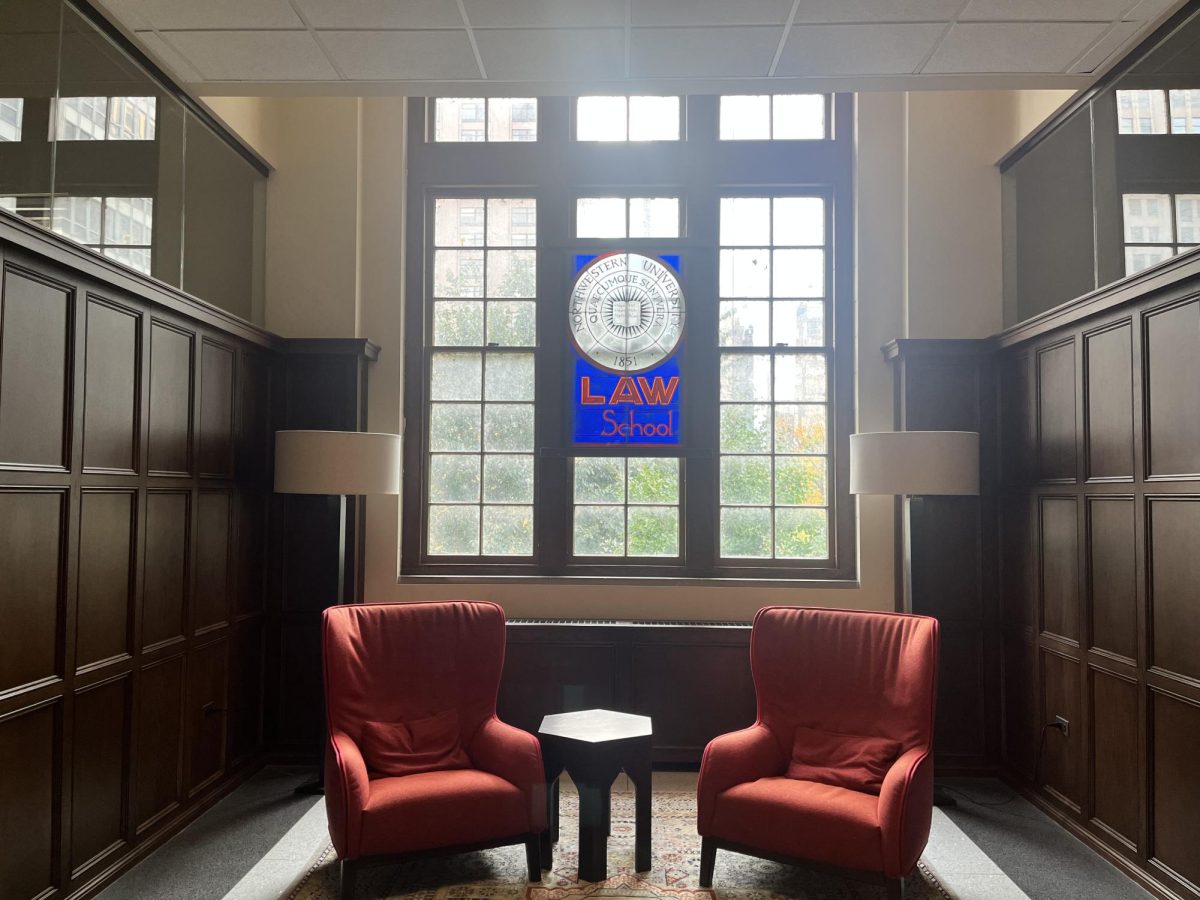Since it was founded by the Bluhm Legal Clinic earlier this year, the LGBTQI+ Rights Clinic at the Pritzker School of Law has been working with clients and partner organizations to promote legal advocacy for the LGBTQ+ community and people living with HIV.
Law students are working at the clinic this semester to help four clients through the process of changing their names while also tackling separate research projects with outside institutions.
“All of our clients identify as nonbinary or transgender, and thus are seeking to change their names so that their legal name reflects better who they are,” said Pritzker Prof. Kara Ingelhart, the clinic’s director.
Ingelhart set the docket for the clinic over the summer and filed an amicus brief for the U.S. v. Skrmetti case in early September.
Ingelhart worked with historians on the brief to explain the history of gender-affirming care and gender dysphoria. The Supreme Court will consider the brief in its decision as it determines the constitutionality of Tennessee’s ban on gender-affirming care for minors.
According to the Human Rights Campaign, over 500 anti-LGBTQ bills were introduced across the U.S. in 2023 — a record number.
The clinic is partnering with the Transformative Justice Law Project of Illinois, an organization that provides name-change services in Cook County, to expand these services to the broader Chicago area.
“What’s so great about this clinic, too, is that we’re able to help people in the county next over,” Pritzker third-year Kailey Fairchild said. “Without us, I don’t know if that would happen.”
Ingelhart and her students have filed three of the clinic’s four cases for the year already. In a couple of weeks, Fairchild will represent her first client at a hearing.
To represent a client, students must have a 711 license and are only allowed to practice under a licensed attorney. Ingelhart will supervise students as they work with clients to file paperwork, represent name-change hearings and update legal documentation.
“(Client work) is where your most amount of surprises are going to come up,” Fairchild said. “We learned one of our clients had previously been married, so they’ve changed their name before, and they hadn’t included that until we got into the interview. … It’s just been a good learning lesson.”
Assisting clients with name changes is only part of the work at the LGBTQI+ Rights Clinic. Fairchild and her partner are tracking various anti-LGBTQ and anti-transgender bills across the U.S. The Whitman-Walker Institute, an LGBTQ+ advocacy group and HIV research institution, will use the clinic’s data to identify similarities in ideology and language in anti-LGBTQ bills.
Other students are partnering with The Center for HIV Law and Policy to research HIV legislation across the U.S.
“I had no experience with HIV advocacy before the clinic, so it’s been really eye-opening and important to go through the research memos for the CHLP because it’s exposing me to the type of law I would have never had the opportunity to learn about and also understand how messed up the legal environment can be for people living with HIV,” Pritzker second-year Aswini Melekote said.
Melekote and their partner are working on writing a paper on the history of HIV law and recent changes to it, specifically regarding the military. The paper will also cover a recent court decision that allows anyone with an HIV diagnosis to serve in the military.
The clinic is creating a research database accessible from the NU Libraries’ website for Pritzker students and the public. It will include legal resources such as a collection of interactive maps to track different types of legislation across the U.S.
“For Northwestern University to hold itself out there as an educational institution wanting to invest in the LGBTQI community is moving to me and a symbol to students that they are investing their educational careers at an institution that cares about them,” Ingelhart said.
Email: lexinewsom2028@u.northwestern.edu
Email: marissafernandez2028@u.northwestern.edu
Related Stories:
— Pritzker LGBTQI+ Rights Clinic files amicus brief in Supreme Court gender-affirming care case






